Everybody has to spend part of their income on groceries as food is a necessity to keep on living.
However, the amount we spend on groceries differs greatly between families. You will feel great when you have more money left over from your monthly budget for things you like spending your money on!
How you can save more money on groceries is not that hard if you follow these 15 tips.
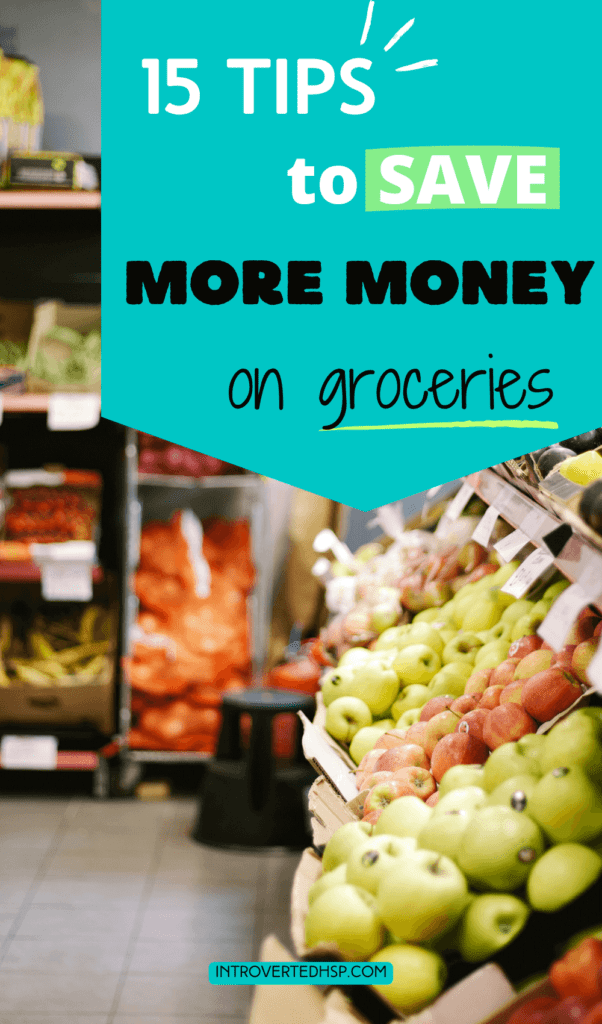
This post may contain affiliate links, which means if you make a purchase through these links, I may receive a small commission at no extra cost to you. As an Amazon Associate I earn from qualifying purchases. Please read my disclosure for more info.
1. Start meal planning
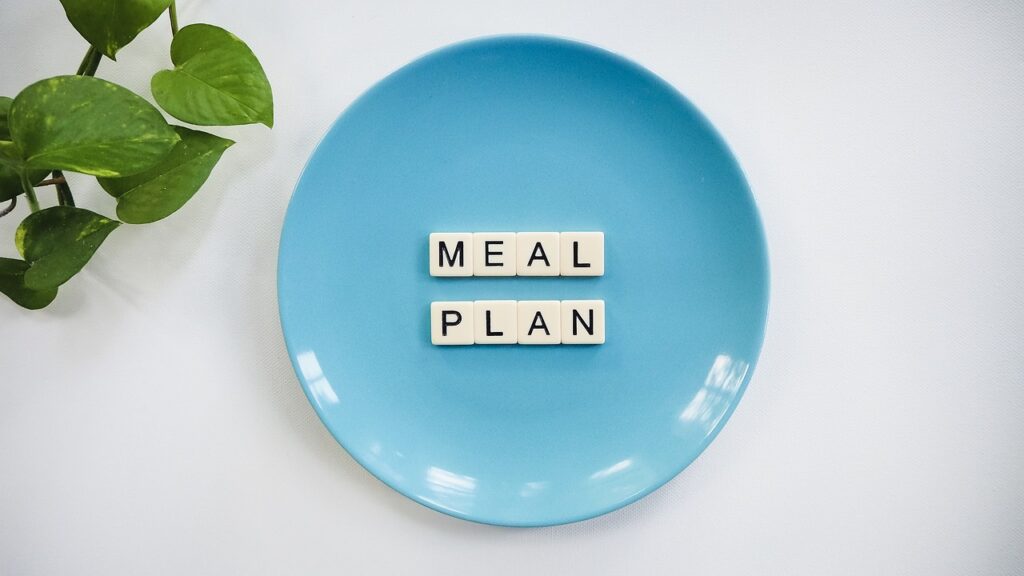
Spend a little time thinking about what to eat during the next week. When you decide what you want to have for dinner in the grocery store, there is a chance you pick highly advertised products that stand out but cost a lot more than when you have a plan in advance.
It’s a good idea to keep bonus folders next to you so you can be inspired by food that has a discounted price when you plan on buying it.
When you plan your meals, the food you are buying is also less likely to expire because you know when you are going to eat everything.
You might also like: 8 Productive Sunday Habits for a Great Start of Your Week
2. Check your pantry
Before you go shopping for groceries, know what is in your pantry!
When you know what food you have available in your home, you can adjust your shopping list and meal plan accordingly.
Make sure you use products that are about to expire first. Normally, products you keep in your pantry don’t expire quickly but there is a date on everything.
Maybe you can use the FIFO principle for your own pantry, this principle is used when stocking the shelves in grocery stores. FIFO stands for: first in first out. When you buy new products to restock your pantry, put them in the back so you will use the products that expire first!
Keep your pantry full with products that you buy when there is a discount on them. Because these products don’t expire quickly, you can buy them in bulk and get the most out of their discount!
3. Shop with a list

Making a list is key when you don’t want to buy stuff you don’t need.
In a supermarket, you will be tempted to buy things that look delicious, that you crave at that specific moment. Therefore you should never go shopping for groceries when you are hungry, you will find yourself buying a lot more than necessary.
You can make a list while you are planning what meals you are going to cook in the next week.
I prefer making a list on my phone or my laptop to keep it organized. Most of the time I start making a list with recipes next to me so I include all the ingredients necessary to make the dishes. After this, I will check my pantry to see what ingredients I already have. If I would make a paper list, I would have to scratch everything out that is already in my pantry so the list becomes a lot more messy.
4. Compare prices, check the price per unit
To be able to compare the prices of products, you will have to compare them by checking their price per unit instead of looking at the price per product.
You can compare prices of different products in the same store as well as compare prices of the same products from different stores. Find the best bargain!
Saving money on groceries is all about knowing the prices and choosing the right ones!
5. Shop at different stores

Different stores price their products differently. There are stores known for cheaper products, often not A-brand products but most of the time, you taste no or little difference.
Look at folders from different stores, you shopping for the same product in different stores you can compare and know which products you can best buy at which store.
Some people will think that this is too much effort, driving to different stores to get all their groceries. Add everything up, and see for yourself if it is worth the difference.
Some people will stop at a grocery store each evening after work, but this will take you a lot longer in total when you compare it to only going once a week with a plan.
6. Buy items on sale
Everybody loves a good bargain!
Shopping with a discount is so much nicer than paying the whole price.
Try to wait for sales on more expensive products or products that have a long shelf life, such as dry food or cleaning products. You can buy products that don’t expire quickly in bulk when there is a discounted price.
At the end of your store visit, you will be saving money on groceries and see it written down on your bill! Good job!
7. Use cash-back apps
There are a lot of cash-back apps these days. Make sure you use them as it is free money in your pocket if you use it for buying products you will buy anyway.
Here are some examples:
- Wool socks: The money app (for Belgians)
- Ibotta
- DollarSprout Rewards
The apps will give back some of the money that you used to buy a certain product.
8. Put in some extra effort, buy pure ingredients
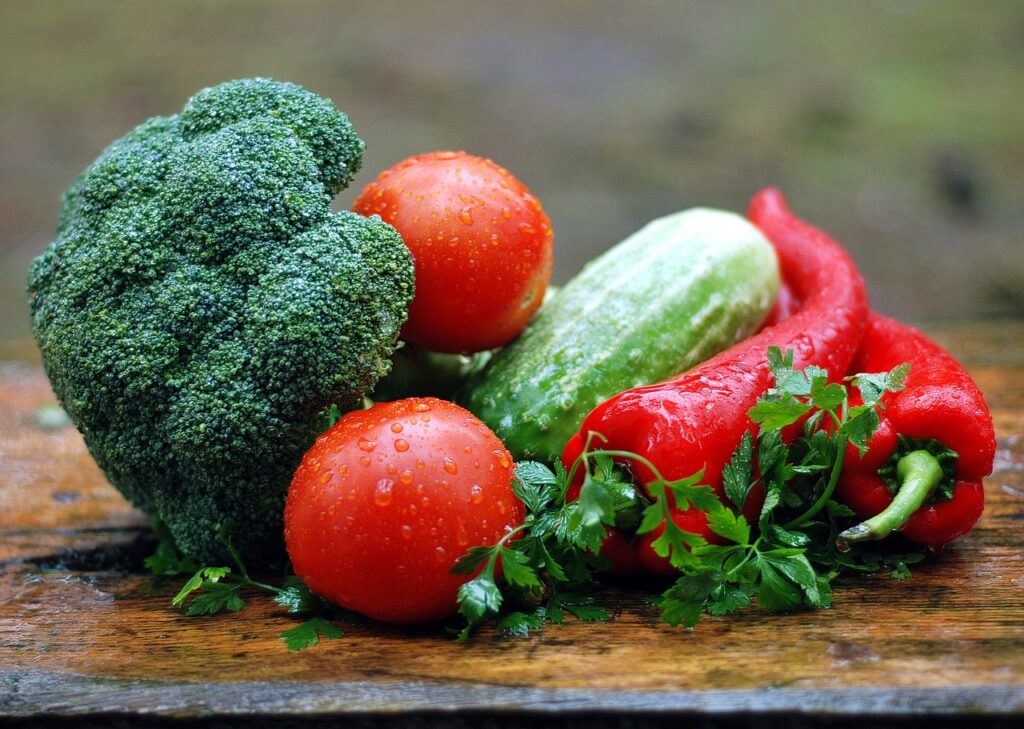
The less you have to do, the easier the product, the more expensive it is. That’s a fact.
Of course, it would be nicer to buy everything already made for you so you only have to throw everything on your plate and be done with it. There are a lot of pre-cut vegetables and microwavable meals available today. It’s better and cheaper to buy pure ingredients, possibly even without packaging.
Bonus: it’s also better for the environment!
9. Try generic labels
A-brand products aren’t necessarily better products than their generic variations. When you like a certain branded product, try to find its generic brother and do a taste test. If it turns out you don’t like it as much, don’t buy it again but you will find a lot of cheaper alternatives to your favorite brands.
They often don’t look as good as branded products because there is less money for marketing, but the most important thing is their taste or function when shopping for non-food!
They are a lot cheaper so you will be saving money on groceries without even missing something. Great!
10. Shop seasonally
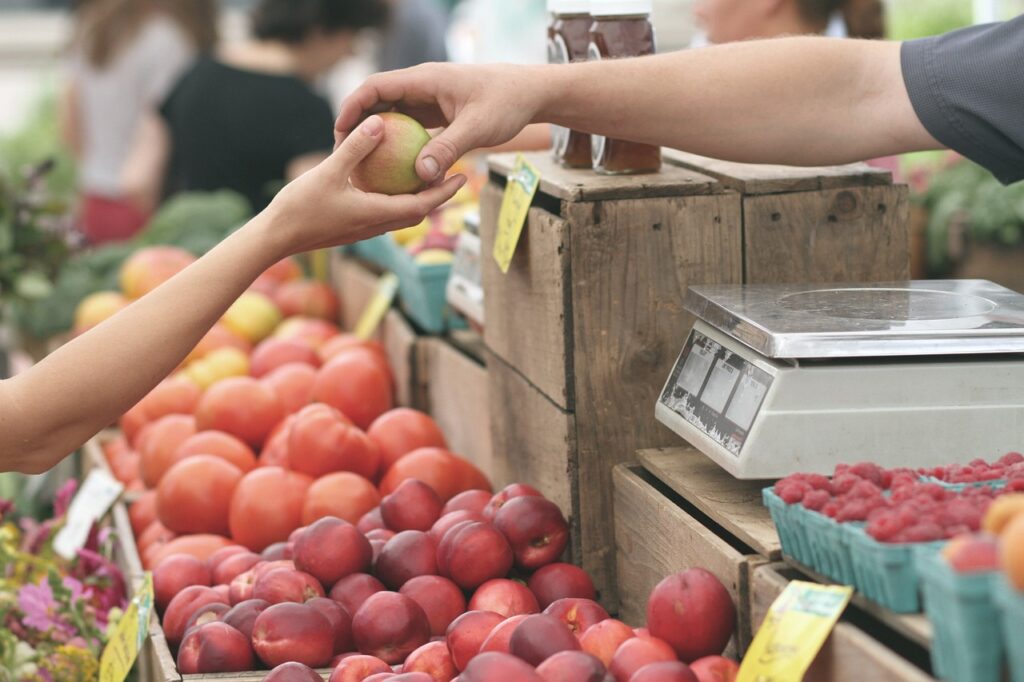
Fruits and vegetables are cheaper when you buy them in the season when they are harvested by farmers. For example, exotic berries will be more expensive in Winter than in Summer.
Always look for which fruits and vegetables are in season right now.
This Blog has a great guide to help you decide when to buy which fruits and vegetables.
11. Freeze your meals
When you only go shopping once a week, it is very difficult to eat all the fresh food before it expires. This is where your freezer becomes your best friend!
Here’s a great article that explains to you if you can still eat frozen food past its expiration date.
You can meal prep on Sunday or the day you do your weekly groceries and freeze a couple of meals to eat later that same week.
12. Wednesday instead of Sunday
I’ve read online that Sunday or actually Saturday aren’t the cheapest days to save money on groceries. You should avoid shopping during the weekend if you can. Because more people are shopping for food anyway, the stores have fewer promotions these days.
Wednesday would be the best day to do your weekly groceries because they restock the stores during the midweek and some promotions of the past week might still apply.
13. Leave your children at home

If you can, go grocery shopping without your kids.
Children don’t think about money so they will just grab whatever they fancy at the moment, which will cost you big time if you allow them.
Saving money on groceries while shopping with your kids seems a bit of a challenge. If you’re up for it, you do, but it’s a lot easier without bringing your little angels.
14. Look farther than your eye level
If you want to save money, you always have to put in more effort. It’s a rule of thumb.
If it costs you more effort, it is probably the cheaper option. Not always, but you see it’s the case most of the time.
In the supermarket, what you see without bending over or moving your head upwards is most likely to be the most expensive option. Go bend your knees and see what’s down there, you will find more generic products with lower prices. The same goes for the products standing way above your eye level.
15. Set a little budget for a splurge
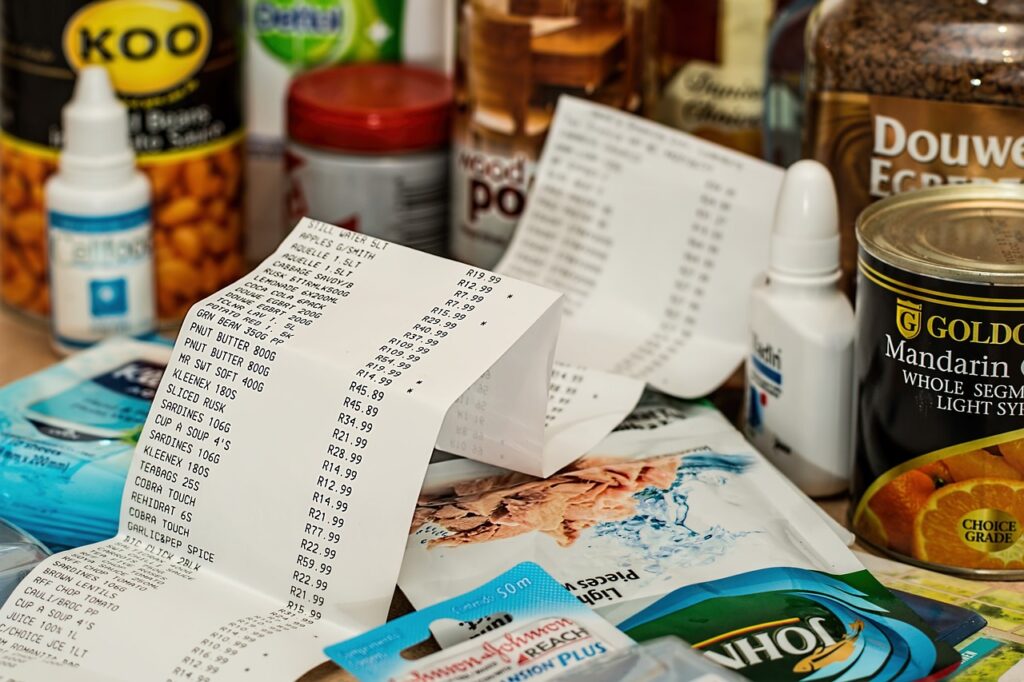
As always, budgeting can be difficult to keep doing after a while because you might get sick of it.
To not give up entirely, can help to allow yourself a little splurge once in a while. Give yourself an amount of money to spend on whatever you like in the grocery store maybe once a month or even every week.
See if this helps you to stick to your budget long-term and achieve your other financial goals more easily.
You might also like: Budgeting Tips For Beginners: How to Start Budgeting
